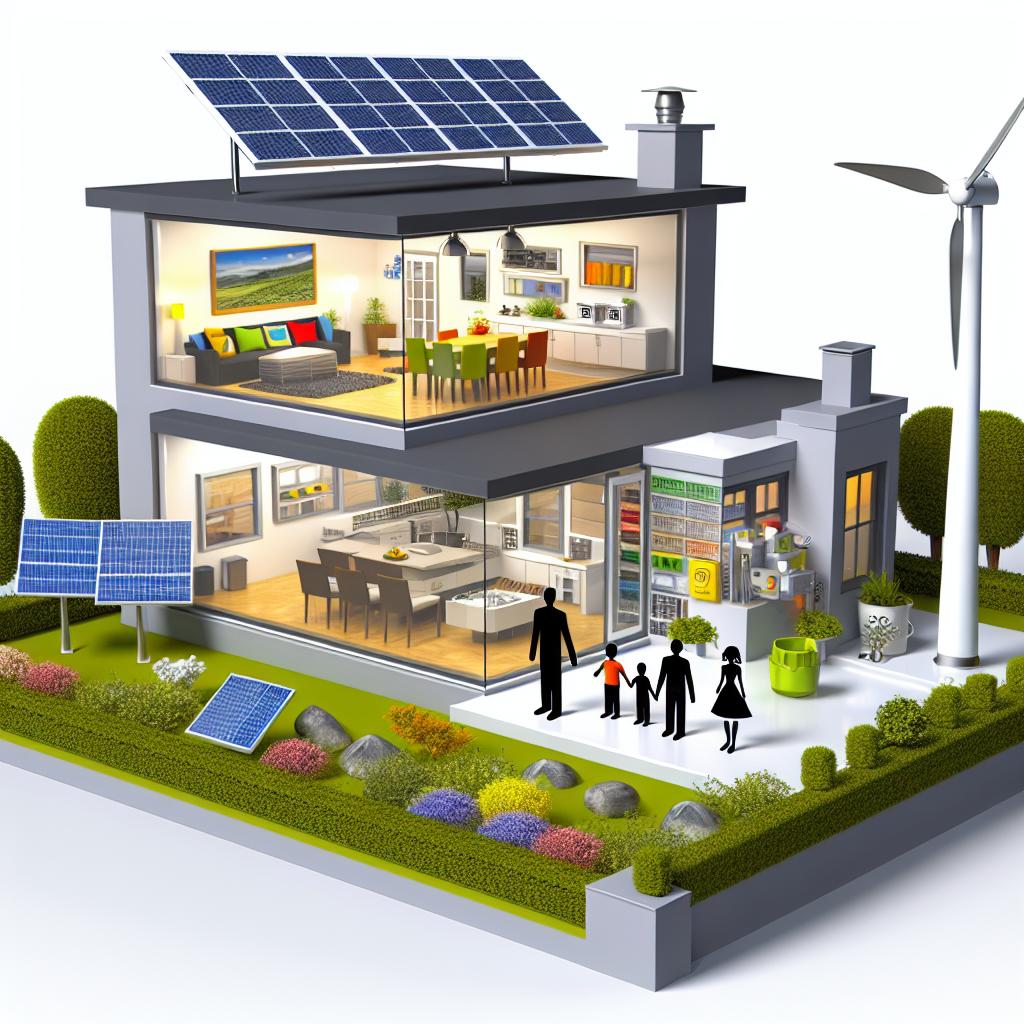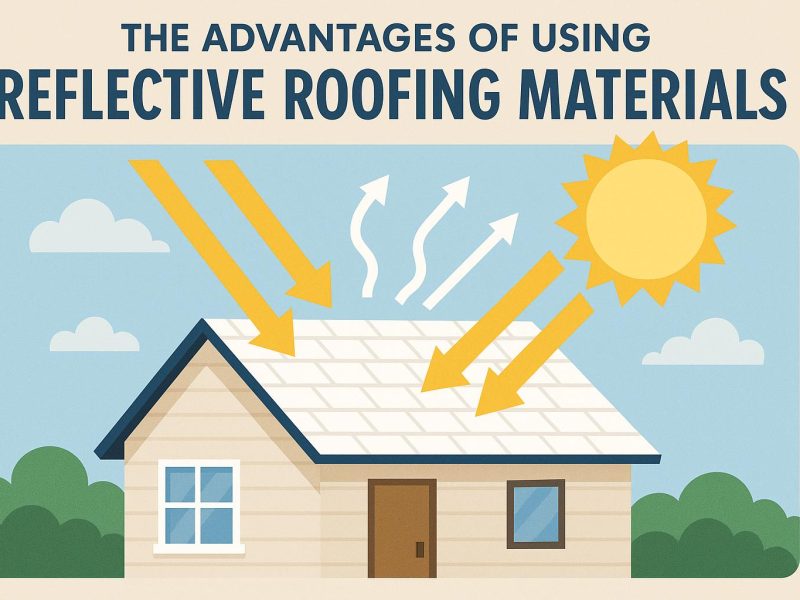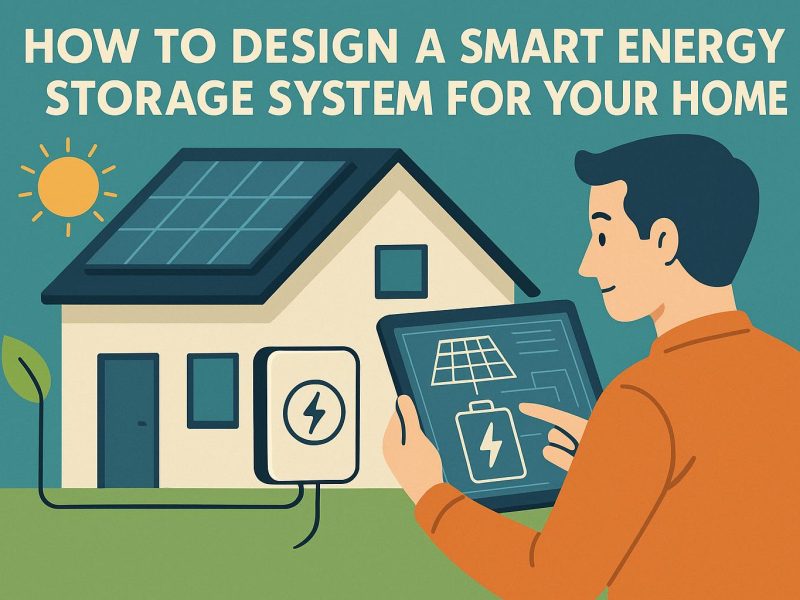Understanding Net-Zero Energy Homes
Net-zero energy homes represent an innovative step forward in residential construction, aiming to generate as much energy as they consume over the course of a year. These homes exemplify the integration of advanced energy efficiency measures combined with renewable energy systems, prominently featuring solar power as a primary component. The endeavor involves careful planning and the use of technology to create living spaces that align with environmental sustainability objectives.
Key Features of Net-Zero Energy Homes
- Net-zero energy homes utilize a variety of design elements and technologies to achieve their goals:
Energy Efficiency:
At the heart of a net-zero home’s design is high energy efficiency, which is crucial for minimizing energy consumption. This often includes elements like advanced insulation techniques that help maintain internal temperature stability, airtight construction to prevent the loss of conditioned air, and high-performance windows that significantly minimize energy loss. These components work together to reduce the overall energy demand of the home.
Renewable Energy Systems:
The reliance on renewable energy sources sets net-zero homes apart from traditional ones. Solar panels are a chief contributor, transforming sunlight into usable electricity that powers the home. This reliance results in a balanced energy footprint, ensuring the energy generated meets or exceeds the amount consumed annually.
Efficient Appliances and Systems:
Appliances and systems within net-zero homes are chosen for their energy-saving capabilities. Heating, ventilation, and air conditioning (HVAC) systems are selected based on efficiency, ensuring minimal energy wastage while maintaining comfort. Additionally, energy-efficient lighting and water heating systems further complement the home’s overall efficiency.
Site Orientation and Design:
A strategic approach to site orientation helps harness the natural benefits of the environment. By maximizing exposure to natural light and optimizing heat gain or loss, reliance on artificial lighting and HVAC systems is reduced. Architectural elements such as overhangs and carefully considered window placements help achieve this balance, leveraging passive solar energy to minimize energy needs.
Environmental and Economic Benefits
Net-zero energy homes offer a series of benefits both environmentally and economically:
Environmental Impact:
By requiring less energy from non-renewable sources, these homes drastically cut down on carbon emissions. This aligns with global sustainability efforts aimed at lowering the carbon footprint of the residential sector and contributing to a healthier planet.
Energy Independence:
Net-zero homes foster energy independence as they generate their own power. Homeowners are, therefore, less susceptible to unpredictable energy market fluctuations, ensuring a stable energy cost environment.
Long-Term Savings:
While the upfront costs can indeed be larger, the investment often translates to considerable long-term savings. Reduced utility bills, owing to self-generated energy, can offset the higher initial outlay over time, providing financial returns.
Challenges in Adoption
Despite their numerous advantages, net-zero energy homes are not without challenges:
Upfront Costs:
The initial costs associated with constructing a net-zero home are generally higher. This is due to the investment in renewable energy systems, like solar panels, and the advanced materials necessary for ensuring high energy efficiency.
Technological Limitations:
In certain geographical locations, the availability of technology and materials suitable for net-zero construction can be a significant barrier. This affects the feasibility of adopting this method universally.
Awareness and Expertise:
A limited understanding of the net-zero concept among the general population, coupled with a shortage of expertise in some regions, poses another challenge. Developers and builders may not have the necessary skills or knowledge to implement such projects effectively.
The Future of Housing
As environmental concerns continue to rise and technology evolves, it’s anticipated that net-zero energy homes will become an increasingly common feature in the housing landscape. The push towards reducing the environmental toll of residential buildings is bolstered by new innovations in building technology and a growing public awareness of sustainable living practices.
The shift towards net-zero energy homes signifies a crucial evolution in the housing sector, pointing towards the broader global sustainability objectives. By paving the way for green and sustainable living, net-zero homes illustrate a forward-thinking approach to modern housing needs. Homeowners and developers interested in building or investing in such residences would benefit from consulting experts in sustainable construction and renewable energy technologies for deeper insights into this future-oriented way of living.



